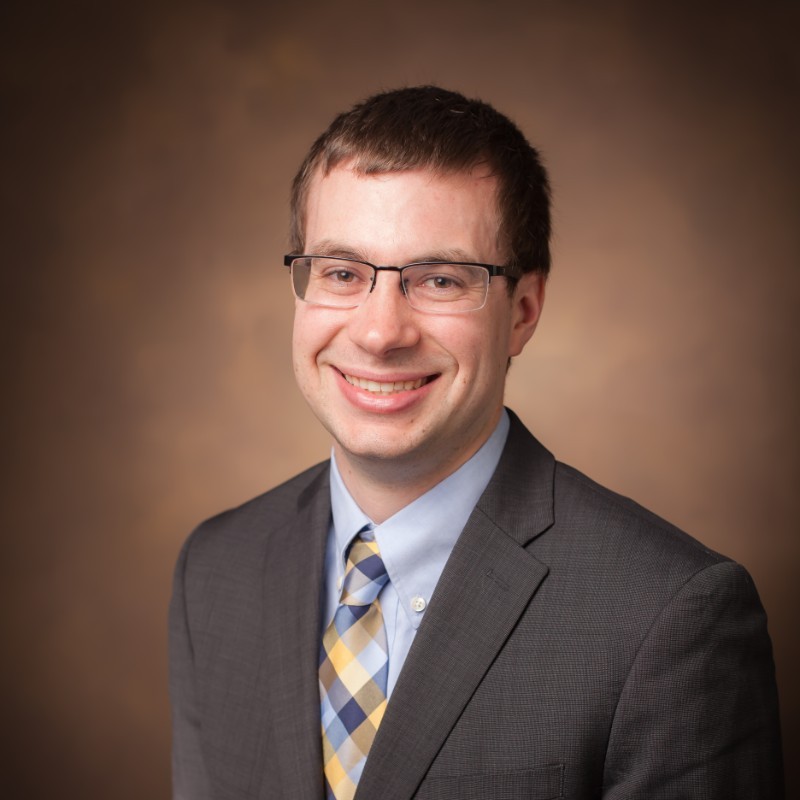Catching up with alum, Dr. Jack Walker!
 by Neil Chada (G2)
by Neil Chada (G2)
Dr. Jack Walker M.D., Ph.D. graduated from the Vanderbilt MSTP in 2022 and is currently a pediatrics resident at the Children’s Hospital of Philadelphia (CHOP). He plans to pursue an endocrinology fellowship on the research track to continue his studies of metabolism in the next chapter of his career as a physician-scientist. I was fortunate to catch up with him on a Zoom call during his lunch break and hear about his current life, his time in the MSTP, why he decided to extend his graduate school years, and all the tips he picked up along the way!
Dr. Walker grew up in Kansas City, MO and attended Washington University in St. Louis for his undergraduate studies. Originally set on becoming an engineer, he was intrigued by basic science research and got involved with some biochemistry research where he found a totally new perspective, namely the sense of scientific discovery. He thoroughly enjoyed his time in research labs back in Kansas City and found himself pursuing similar work on campus at WashU. It was through several of his friends who were interested in becoming physicians that Dr. Walker got exposed to medicine and after gaining firsthand experience through shadowing and other opportunities at home and at college, he was convinced a career that combined research and clinical medicine would be right for him and led him straight to the Vanderbilt MSTP.
At Vanderbilt, Dr. Walker was looking to expand on his research in chemistry to focus more on living systems with biological applications. After his medical coursework, he instinctively thought metabolism would be a natural fit and pursued labs that worked in this area. After a couple of experiences, he found the lab of Alvin Powers, M.D., to be a great fit and consequently joined the department of Molecular Physiology and Biophysics for his graduate work. Just like a lot of us, Dr. Walker’s original goal was to progress through graduate school as quickly as possible and move on to the next stage of his career. About 3 and half years into his PhD, he realized that he could in fact finish up and move on to the last year of medical school but after coming across some interesting data and having multiple conversations with his mentors, Dr. Walker decided to stay an extra year to finish out something he started. The culmination of his graduate work came recently in a co-first author publication in Nature and uniquely even included some data he collected during his lab rotation! Dr. Walker mentioned that the decision to stay on in graduate school was not only guided by his research but also what felt right to him and for the lab. It was important to him to see some of his ideas through till the end and he simply enjoyed what he was doing so it made sense to keep it going. A piece of advice that I particularly resonated with was to “believe in the work that you are doing,” namely that it matters less where the work ends up than taking pride in the work that we put in day in and day out.
Dr. Walker’s research interest naturally led him to clinical experiences in internal medicine and pediatrics. After rotating through both, he felt more at home in pediatrics and found a particular liking to endocrinology. This led him to beginning a research track residency at CHOP where he plans to fast track into pediatric endocrinology this summer. When asked about the transition from research to clinical training and particularly residency, Dr. Walker said that “nothing realistically prepares you to be a resident as much as just being a resident.” While we can spend countless hours studying over everything taught in medical school, the reality is that nothing will truly simulate the feeling of being a resident. The daily and immediate short-term goals of being a resident are drastically different than the pace research decisions need to be made and this was something that Dr. Walker learned early on and continues to balance. As we all strive to be physician-scientists, this sort of duality in thinking will be one that we will all encounter and learn to embrace in the future.
Finally, Dr. Walker discussed his view on work-life balance and how he has been able to apply it to his career. What stood out most to me in this discussion was when he said, “as we progress through our careers as physician-scientists, our priorities shift and it is important to notice that so will our work-life balance.” When in graduate school, Dr. Walker was enamored by his work and found that he was spending a large amount of time in lab, but this was by design with the balance leaning more towards work. Now as a resident with a family including a child, he has found that his priorities have shifted and the way he spends his time have moved the same way. Dr. Walker left me some inspiring parting words, paraphrased as follows – As we prioritize different aspects of our life at different times, it is only natural to spend our time to reflect those priorities and that is okay!
